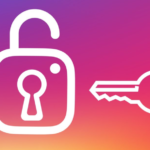When it comes to the number 8139405355, there's more than meets the eye.
Have you ever wondered about the true intentions behind false caller IDs? The veil of anonymity they provide can often conceal a web of deceit and fraudulent activities.
Unraveling the mystery behind this particular number could shed light on a larger issue at hand, prompting a closer look at the dangers lurking within our seemingly innocuous phone calls.
The Rise of Caller ID Spoofing
Caller ID spoofing, a deceptive practice allowing scammers to manipulate the displayed phone number, has seen a sharp increase in recent years. This rise in spoofing has made it easier for scammers to trick individuals into answering calls they'd otherwise ignore. By altering the caller ID to display a familiar number or a legitimate organization, scammers increase the likelihood of their calls being answered. This manipulation preys on individuals' trust in the displayed caller ID information, making it harder to distinguish between genuine and fraudulent calls.
With technological advancements, scammers can easily obtain software or devices to change the caller ID information, making it appear as if the call is coming from a different number. This tactic adds a layer of sophistication to their schemes, leading to an influx of successful scam attempts. As a result, the number of reported fraudulent calls has surged, causing financial losses and emotional distress for many unsuspecting victims. It's crucial to remain vigilant and cautious when answering calls from unfamiliar numbers to avoid falling victim to these deceitful practices.
Common Tactics Used by Scammers
Stay alert for scammers who employ various tactics to deceive unsuspecting individuals. One common tactic is creating a sense of urgency. Scammers may claim that immediate action is required to prevent a negative consequence, such as legal trouble or financial loss. They pressure you to act quickly without giving you time to verify the legitimacy of their claims.
Another tactic is offering unrealistic rewards or prizes. Scammers may entice you with promises of extravagant gifts or winnings in exchange for personal information or payment. Remember, if something sounds too good to be true, it probably is.
Additionally, scammers often use intimidation tactics. They may threaten you with consequences like arrest, loss of assets, or harm to your reputation to coerce you into complying with their demands. Be cautious of any caller or message that tries to intimidate you into taking immediate action without allowing you time to think things through.
How to Identify a False Caller ID
Be cautious of any unexpected phone call displaying a number that seems unfamiliar or suspicious, as it could be a false caller ID attempting to deceive you.
To identify a false caller ID, pay attention to inconsistencies like receiving a call from a familiar number that you know is unlikely to contact you. False caller IDs often use numbers that look legitimate but may not be.
Look out for calls demanding immediate action or threatening consequences, as these are common tactics used by scammers. Trust your instincts; if something feels off or too good to be true, it's best to err on the side of caution.
Consider using call-blocking services or apps that can help filter out potential scam calls. If in doubt, hang up and independently verify the caller's identity through official channels.
Impact of False Caller IDs on Victims
The deceptive use of false caller IDs can have severe consequences for unsuspecting victims who fall prey to such scams. When you receive a call with a spoofed caller ID, you may be misled into believing it's a legitimate call from a trusted source. This can lead you to divulge sensitive personal information, such as your social security number or banking details, putting you at risk of identity theft and financial loss.
Moreover, false caller IDs can also be used in various types of scams, including phishing schemes and fraudulent schemes aimed at extorting money from victims. Once scammers have obtained your trust through a spoofed caller ID, they can manipulate you into making rash decisions that you might later regret.
The psychological impact of falling victim to a false caller ID scam can be significant, causing feelings of violation, mistrust, and vulnerability. It's essential to stay vigilant and verify the authenticity of callers, especially when the caller ID seems suspicious or unfamiliar.
Legal Actions Against Caller ID Spoofing
Combatting caller ID spoofing involves implementing strict regulations and enforcing penalties to deter scammers from engaging in deceptive practices. The Truth in Caller ID Act of 2009 prohibits the transmission of misleading or inaccurate caller ID information with the intent to defraud, cause harm, or wrongfully obtain anything of value. Violators of this act can face penalties of up to $10,000 for each violation.
Additionally, the Federal Communications Commission (FCC) has taken steps to combat caller ID spoofing by requiring phone service providers to implement technology to authenticate and verify caller ID information. Failure to comply with these regulations can result in significant fines for service providers.
In recent years, law enforcement agencies have also been cracking down on caller ID spoofing. The Department of Justice has prosecuted individuals and groups involved in large-scale spoofing operations, leading to convictions and substantial fines. By enforcing these laws and penalties, authorities aim to protect consumers from falling victim to fraudulent schemes facilitated by caller ID spoofing.
Frequently Asked Questions
Can False Caller IDs Be Traced Back to the Original Scammer?
Yes, false caller IDs can potentially be traced back to the original scammer through thorough investigation and cooperation with telecommunications companies. It is essential to report such incidents to the authorities for further action.
Are There Any Legitimate Reasons for Someone to Use a False Caller Id?
Yes, there are legitimate reasons for someone to use a false caller ID, such as protecting their privacy or safety. However, misuse of this practice for fraudulent purposes can have serious consequences.
How Do Scammers Obtain Personal Information to Use in Caller ID Spoofing?
Scammers obtain personal information for caller ID spoofing through various means like data breaches, phishing emails, and social media. They use this info to trick you into answering calls by displaying familiar numbers.
What Are the Long-Term Consequences for Victims of False Caller ID Scams?
Long-term consequences of false caller ID scams can include financial loss, identity theft, emotional distress, and distrust of incoming calls. Stay vigilant, report incidents, monitor accounts, and educate others to prevent falling victim.
How Do Phone Companies and Regulators Work Together to Combat Caller ID Spoofing?
Phone companies and regulators collaborate by implementing technology to detect and block caller ID spoofing. They also share information and cooperate in investigations to combat this fraudulent practice, aiming to protect consumers from falling victim to scams.
Conclusion
In conclusion, false caller IDs like 8139405355 are a growing concern in today's digital age. By understanding the tactics used by scammers and learning how to identify a false caller ID, you can protect yourself from falling victim to fraudulent schemes.
It's important to stay vigilant and report any suspicious calls to the authorities to help combat this deceptive practice. Stay informed and stay safe!








